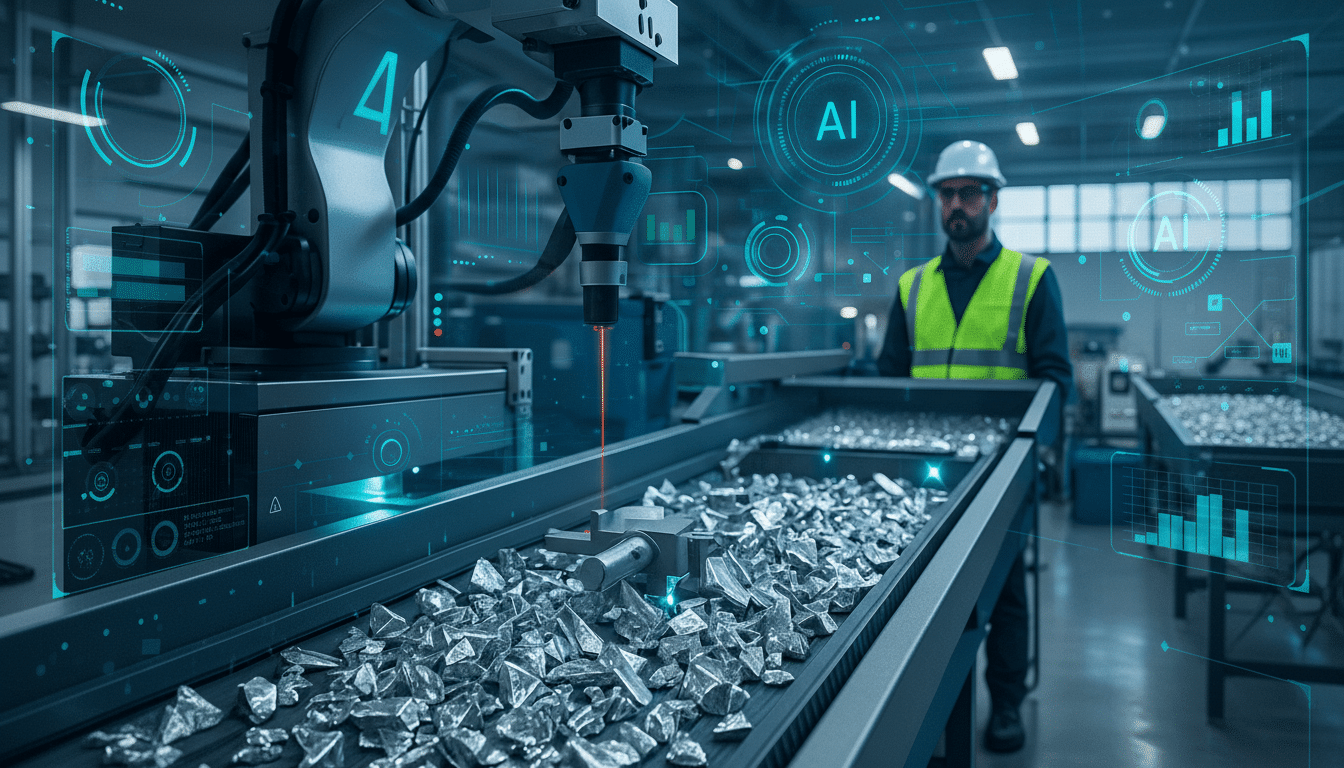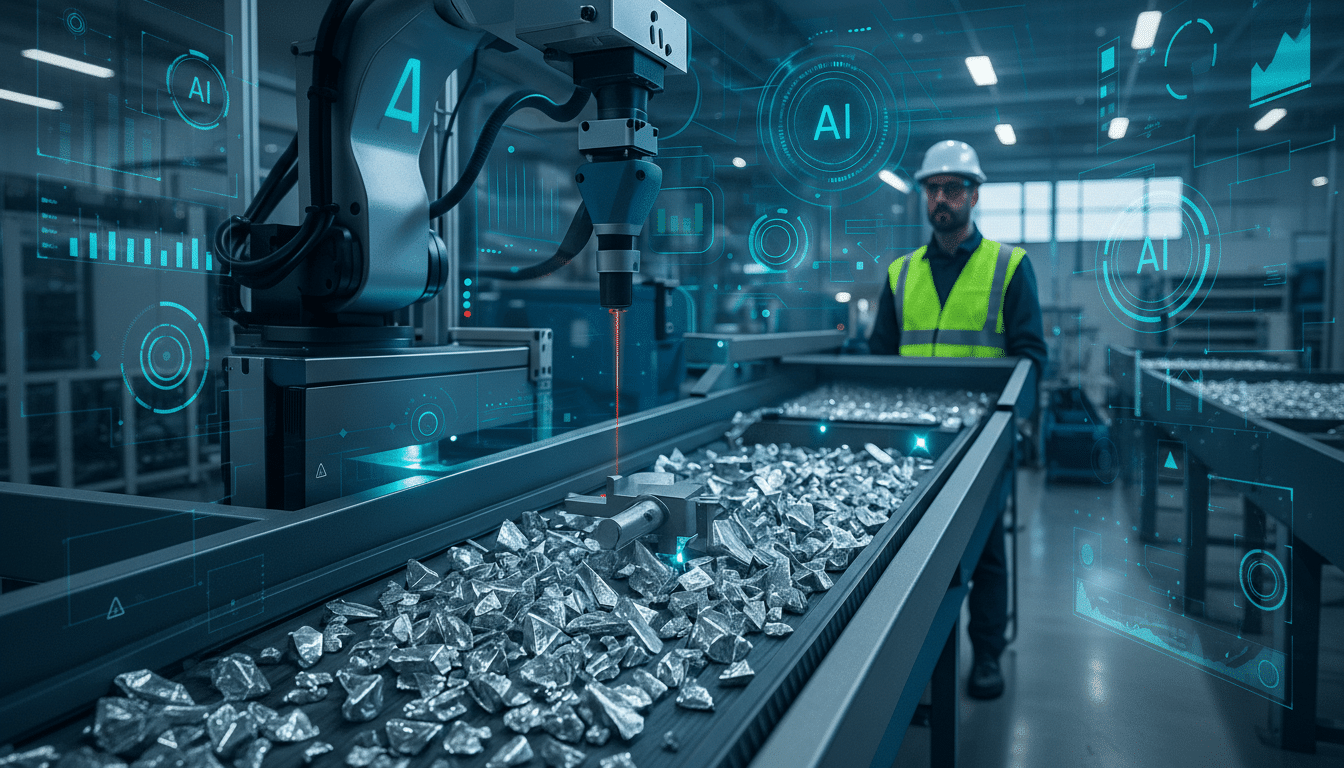Aluminum should be recycling’s low-hanging fruit, and yet the U.S. is allowing money to slip through our fingers.
Solving the problem at the choke point — sorting mixed scrap — with an AI-powered system that grades aluminum in real time, Sortera says it lifts low-value blends into premium, specification-grade feedstock.

The payoff is real: increased volumes, strong margins, and a second plant up and running to match a 24/7 operation in Indiana, which already handles millions of pounds on a monthly basis.
Cracking the mixed metal bottleneck in recycling
The U.S. Environmental Protection Agency and the International Aluminium Institute state that although aluminum can be recycled over and over, saving approximately 95 percent of the energy compared to creating primary metal, just one-third of it in the U.S. is recovered. The catch has been mixed streams: Once you’ve shredded a bunch of different alloys together, most recyclers will be forced to melt and assay in order to figure out what’s what — a slow, value-killing process.
Sortera attacks that friction upstream. By segregating families of alloys before melting, the company saves precious chemistry and value while ensuring that mills and foundries can purchase with confidence. In a market with tight tolerances on composition and important warranties, grade trust is also unlocking very real premiums.
How the AI-powered aluminum sorting line works
At Sortera’s line, shredded flakes and small pellets — some as large as potato chips, others much smaller — stream beneath a bank of sensors: high-speed cameras, laser-based detection systems, and X-ray fluorescence. A model is trained to combine those signals to identify the alloy in about the blink of an eye, and precision air jets blow each piece into a proper bin. Decisions take just a few milliseconds, the company says, quick at an industrial scale.
The sweet spot is automotive scrap. Various grades of aluminum found in cars fracture and wrinkle uniquely once they are crushed. Those tiny tear patterns are a tell on alloy families like 3xx or 6xxx, cluing the model in without melting anything. The result is a claimed sorting accuracy north of 95 percent — a point at which purity begins to change the economics.
Why aluminum recycling margins rise with higher purity
In metals, purity is price. Mixed “twitch” aluminum may clear fast, but single-alloy loads can fetch meaningful premiums — often tens of cents per pound more, according to industry pricing services like Fastmarkets — because they go straight into exact casting recipes. Profitability rises nonlinearly after accuracy reaches 90 percent because every point of purity expands the gap between what it pays for scrap and what mills pay for clean, graded material, according to Sortera.

That’s particularly pertinent for purchasers bound by stricter Scope 3 targets. When manufacturers purchase high-recycled-content certified aluminum with known chemistry, they can reduce embedded carbon. The Aluminum Association has long reported automakers’ move toward lighter materials, and closing the loop on high-grade scrap could turn sustainability goals into cost savings.
Auto supply chains work to close the aluminum loop
Automakers are gradually adding more aluminum to reduce vehicle weight and increase the range of battery-powered electric vehicles. Independent research commissioned by the Aluminum Association has documented two or more years of growth in body-in-white, closure, and chassis applications. If scrap from those components can be sorted back into these same alloy families, a genuine closed loop emerges: Stamping offcuts and end-of-life vehicles circulate back into the melt as direct feedstock with minimal downgrading.
Every major OEM has kicked the tires on its Indiana facility, attracted by the steady feed and reduced melt adjustments that promise to be shared with processors. For producers, fewer chemistry changes lead to shorter cycle times, lower flux consumption, and less dross — operational victories that add up at volume.
Scaling up operations and the road ahead for Sortera
The company’s next plant, near Nashville, is being designed as a cloned version of the Indiana site to hasten deployment while de-risking commissioning. Sorting layouts are being standardized, sensor packages are graduating into products, and control software is sliding toward commodity status — which all adds up to Sortera’s repeatability: a must-have if it’s ever going to process an outsized percentage of the millions of tons of aluminum coursing through U.S. supply chains each year, as measured by the U.S. Geological Survey.
Outside aluminum, the same playbook could apply to copper, titanium, and mixed nonferrous streams. But the immediate challenge is to maintain a high level of accuracy in real-world operation — with variable feedstock, sensor fouling, and data drift. Anticipate other quality assurance touches, such as online checking and tighter audit trails, to satisfy buyer demands for traceability as federal “Buy Clean” preferences and corporate sustainability commitments recast procurement.
If the technology sticks, then Sortera’s model shows AI plus industrial hardware can unlock stranded value that is hiding in plain sight. In an industry where a couple of purity points shift markets, transforming America’s dirty aluminum scrap into a high-margin product is less a recycling story than a manufacturing upgrade — and one that pays for itself.

